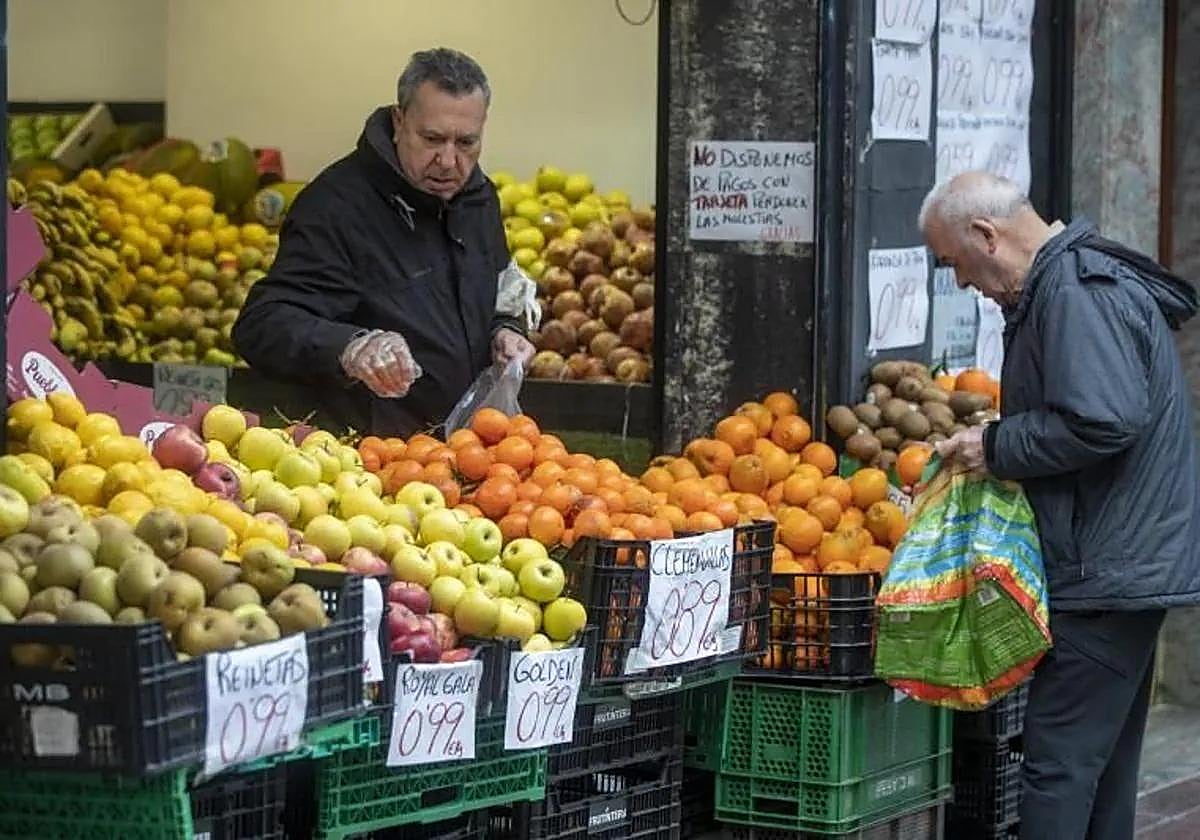Pensions will rise by 2.8 per cent in 2025 in Spain, about 500 euros more per year
This is the smallest increase since 2022 due to moderating inflation, but the maximum benefit of the system will rise by almost 100 euros per month to 3,267 euros
Next year, the more than 9.2 million Spanish pensioners will have around 500 euros more. The preliminary November inflation figure has revealed one of the most anticipated pieces of news for the beneficiaries of a pension: how much their payments will increase next year. They will rise by 2.8 per cent, the most moderate increase since 2022, following an 8.5 per cent rise in 2023 and a 3.8 per cent adjustment this year, according to information released on Thursday by the ministry of inclusion, social security, and migration.
On Thursday, the national statistics institute, INE, published the advance CPI for November, which rose notably to 2.4 per cent - compared with 1.8 per cent in October - with the underlying rate at the same level, mainly due to the base effect produced by electricity and fuel prices. This data is what determines how much the pension will rise, which from 2022 will automatically rise in line with the average inflation of the last twelve months (from December to November), without the need for the government of the day to decide. However, it will be necessary to wait for the final inflation figure - to be confirmed on 13 December - to officially confirm this rise, although both figures usually coincide.
Thus, the average pension in the system will increase by around 35 euros in January (around 500 additional euros per year) to close to 1,300 euros per month, a barrier that it will certainly surpass for the first time next year. This will mean just under 600 euros a year more for the more than 6.4 million pensioners, who will now receive around 1,500 euros a month.
Those who were self-employed, however, will have to settle for an increase of 27 euros per month and receive 992 euros, 650 euros less than salaried workers. For their part, widows' pensions will increase by an average of 25 euros to 922 euros (they have never exceeded the 900 euro mark). There will be a slightly larger increase in the benefit for permanent disability, 32 euros per month, to almost 1,200 euros, while the orphan's pension will increase by 14 euros to 516 euros per month and the family allowance will rise from 743 euros to 764 euros.
But the big new feature this year is that the system's maximum pension will rise above the 2.8 per average increase in prices this year, just over one tenth of a percentage point more, a measure that was introduced in the last reform to try to compensate for the greater burden that the additional increase in contributions that high incomes will suffer in the coming years will mean for them. In this way, the maximum pension will be boosted to 3,267 euros, almost 100 euros more than at present.
"The revaluation of pensions in line with price increases is a measure of social justice, which ensures that those who have worked and contributed for a lifetime maintain their purchasing power," said the minister for pensions, Elma Saiz, in a statement.
Inflation control
The upturn in prices in November takes Spanish inflation further away from the European Central Bank's (ECB) target of 2 per cent. In October, the consumer price index (CPI) rose by three tenths of a percentage point to 1.8 per cent, after four months of consecutive falls and following the recovery of VAT on foodstuffs.
The 2.4 per cent achieved in November implies a rise of 0.2 per cent with respect to October, the highest increase in monthly rate in a November since 2021, according to INE statistics.
Nonetheless, this upward turn in prices in the final stretch of the year had long been discounted by analysts, also due to the base effect when comparing the data with the last quarter of 2023, when a certain moderation in inflation was already beginning to be noticed. Moreover, the underlying rate moderated by one tenth of a percentage point in November. "If we look at this monthly variation, it was below the historical average for the third consecutive month," explained Santiago Martínez Morando, head of economic and financial analysis at Ibercaja. "This indicates that the reduction in inflationary pressures continues," he added.
We will have to wait for the final figure to see if this figure hides a slowdown in the prices of the services sector (hotels and restaurants), which are the ones that most concern the market due to their resistance to falls, once the strong rises in food prices have been stifled.
For the time being, the market prefers to stick with the positive data for the year as a whole. "This reduction demonstrates the effectiveness of the economic policy measures implemented, which are making it possible to combine the highest growth among the main economies of the euro area with a continued reduction in inflation," the ministry of finance said.
The consensus is optimistic that the ECB will be able to keep inflation in check. The monetary body will meet again in December to agree on another 25 basis point cut. An adjustment that some are beginning to see as limited given the risks of an economic slowdown in large economies such as Germany.
"In the coming months, price growth is expected to continue at levels close to, but slightly above, the central bank's targets (around 2 per cent), due to the dynamism of consumption and wages and the additional pressure that may be exerted by the undervaluation of the euro, which makes imports more expensive and which has worsened after Trump's victory," Morando said.

